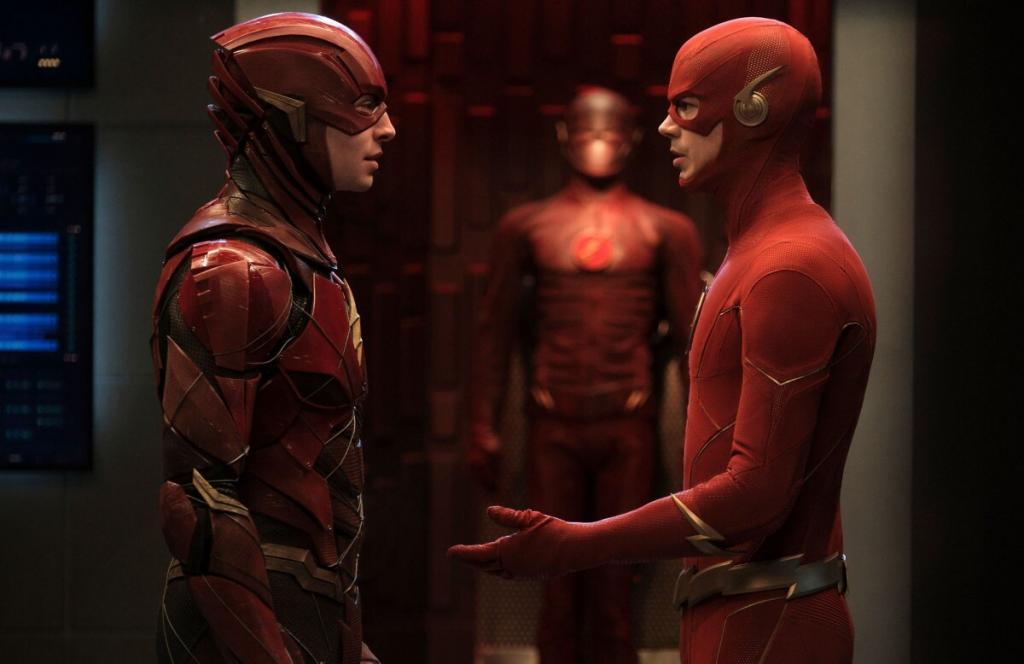Man, I love that title. “Failing at the Speed of Thought: How The Flash Made Something Insane Canon Because of Sloppy Worldbuilding”. I hate writing titles, so I’m going to take a second or two to appreciate that one.
I mean, I have to, because I’m not Barry Allen.
Let me explain why I have no choice – and in the process, show you how worldbuilding is really important, even in the silliest of genre fiction.
I understand that the Arrowverse is, um, bad with science. There was this bit from Supergirl (“Crisis on Infinite Earths, Part 1) that I thought was the best possible example of bad science writing:
And it is bad. Thirty seconds of Eye of Argon bad writing with science words just thrown into a blender. I thought there was no way that it could get worse.
And then I started watching season 7 of The Flash, and it was worse. I’m pretty sure that the writers for Arrowverse shows are doing it on purpose and trying to troll everyone. Here’s two real quotes from S07E02:
“His blood would have bonded with the electronegative particles and become dark matter photons.”
“Those photons are still on her.”

Why do I care about this bad science writing?
They accidentally made free will not exist in the Arrowverse and the DCU at large.
Here’s the clip (and power) in question:
The key part – if you can’t watch that clip – is that Barry Allen now has “superspeed thinking”. That isn’t a problem in and of itself. He thinks fast, so he’s smarter. No problem.
The problem is that Barry Allen now clearly thinks fast enough to repeatedly – and with 100% accuracy – predict the future.
He doesn’t just jump to the solution of the problem. He doesn’t just “figure it out” in a bit of handwaving (like in every adaptation of Sherlock Holmes).
No, the Flash here sees Cisco do what he was going to do and say what he was going to say. Things that the Flash did not previously know about or know was going to happen.
The Flash was able to predict the words and principles and completely new information based on what he had already known and experienced. That is, he was able to predict complex new information based on all the other old information he had.
He did the equivalent of using physics to predict the path of a marble. Not in vacuum, not without gravity, not assuming a spherical farm animal. It’s doable, but it’s complex. That’s clearly what the writers meant to convey.
But humans aren’t marbles. If there’s free will, even if you have all the variables at play, you cannot predict a human’s actions with complete accuracy.
But the Flash does. Repeatedly.
Which means that Cisco – and the other character who comes in at the end of the clip, with even more new information that Barry Allen didn’t know – are operating in a completely mechanistic universe.
They do not have free will. Every choice they’ve made has been immutable since the beginning. Thanks to a cameo on Crisis, this is also canon for the cinematic DCU, including the Snyder Cut.

The Flash (Arrowverse version) does have free will, though. This is evidenced by the fact that reality does not unfold as he predicted. He changed what was going to happen by doing something different.
Because of this bit of lazy writing, something absolutely insane is now canon across the Arrowverse and DCU. For Barry’s “speed thinking” to work like it does, the live-action DC universe is entirely mechanistic and deterministic.
Across all the (once) Infinite Earths, Barry Allen – and perhaps only Barry Allen1 – is the only human who possesses free will.
Ever.
Featured Photo by Diego PH on Unsplash

[1] We haven’t seen this power used by any other speedsters, including those who canonically are faster than Arrowverse Barry Allen, even when it would have been really useful for them.
